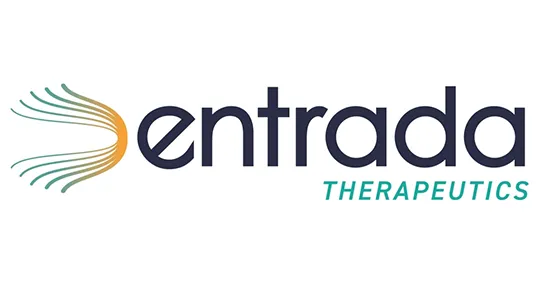FDA Pauses IND Submission for Duchenne Therapy ENTR-601-44

In preclinical studies, ENTR-601-44 has demonstrated a robust ability to skip exon 44 in the muscles of nonhuman primates and full-length human DMD mice.
Entrada Therapeutics has announced that the FDA has placed a clinical hold on the investigational new drug application for its investigational Duchenne muscular dystrophy (DMD) treatment, ENTR-601-44.1
ENTR-601-44 is an exon 44 skipping oligonucleotide developed with Entrada’s Endosomal Escape Vehicle (EEV) platform. It aims to target the underlying genetic cause of DMD to allow muscle cells to produce functional dystrophin, and the company estimates that ENRE-601-44 will benefit roughly 7.5% of the DMD population who are considered exon 44 skipping amenable.
The agency noted that within 30 days, it will supply Entrada with a clinical hold letter, and the company stated that it planned to share updates regarding further communication with the FDA.
"The clinical hold on our ENTR-601-44 program is disappointing and we will work to address the FDA’s concerns regarding the IND,” said Dipal Doshi, president and CEO of Entrada Therapeutics, said in a statement.1 “There are no approved Duchenne therapies for people with exon 44 skippable mutations and we are eager to resolve this hold and continue down the treatment development pathway."
ENTR-601-44 is currently in preclinical development with no in-human trials conducted thus far; however, the company did present nonhuman primate data on the agent earlier this year at TIDES USA 2022: Oligonucleotide and Peptide Therapeutics Conference. All told, the therapeutic showed robust exon 44 skipping in nonhuman primate biceps through 12 weeks following a single intravenous infusion, demonstrating durability of response.2
That data built on a previously reported nonhuman primate study indicating similar robust exon 44 skipping across different muscle groups at 7 days following a single intravenous infusion. Specifically, treatment with the agent resulted in exon skipping in the quadriceps, biceps, deltoid, tibialis anterior, diaphragm, and cardiac ventricle.
Entrada announced both of these analyses, as well as other analyses in hDMD mice expressing full length human DMD gene and patient-derived muscle cells, at the 2022 New Directions in Biology and Disease of Skeletal Muscle conference. In patient cells, robust dose-dependent exon 44 skipping and dystrophin protein production were observed after 5 days of differentiation. Similarly, the agent resulted in high and durable levels of exon 44 skipping across major muscle groups in hDMD mice for at least 12 weeks.3
At TIDES USA 2022, the company also announced its second candidate, ENTR-701, an EEV-PMO, is being developed as a potential allele-specific treatment for patients with myotonic dystrophy type 1 (DM1). At the time, Natarajan Sethuraman, PhD, chief scientific officer, Entrada, said in a statement, "To date, we have generated robust in vitro and in vivo preclinical data supporting the advancement of our DMD and DM1 programs. These encouraging data reinforce the potential of our EEV therapeutic candidates to engage previously inaccessible and undruggable disease-causing targets within cells, and we look forward to presenting additional data at upcoming scientific meetings."2
REFERENCES
1. Entrada Therapeutics announces clinical hold on IND application for ENTR-601-44 in Duchenne muscular dystrophy. News release. December 19, 2022. Accessed December 20, 2022. https://www.biospace.com/article/releases/entrada-therapeutics-announces-clinical-hold-on-ind-applic...
2. Entrada Therapeutics presents new data supporting its growing pipeline of endosomal escape vehicle (EEV) therapeutics at TIDES USA 2022. News release. May 11, 2022. Accessed December 20, 2022. https://ir.entradatx.com/news-releases/news-release-details/entrada-therapeutics-presents-new-data-s...
3. Estrella NL, Hicks AN, Kumar A, et al. Development of ENTR-601-44, a novel EEV-conjugated PMO for Duchenne muscular dystrophy. Presented at: New Directions in Biology and Disease of Skeletal Muscle Conference; Ft. Lauderdale, FL.
December 21, 2022



